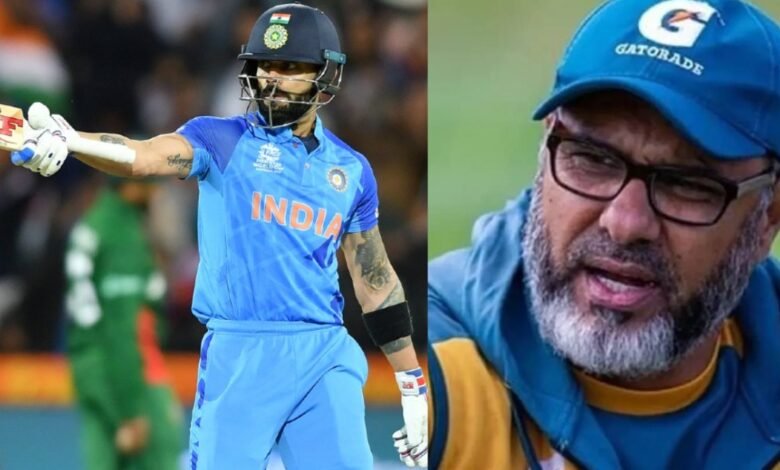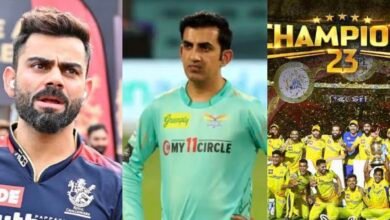“He is a big name, his gesture towards umpires might create pressure on them,” Waqar Younis not pleased with Virat Kohli for demanding no balls and wides from the umpire
Yesterday during the India Vs Bangladesh game in T20 World Cup, a shoulder high no ball was called after Kohli asked for it

The former Pakistan fast bowler Waqar Younis reckons that Virat Kohli gesturing towards the umpire and asking for no balls and wides might be creating pressure on the umpires to give calls in his favor because he is one of the biggest names in world cricket.
A slight controversy about Virat Kohli erupted during the India Vs Pakistan game as well when Kohli had asked for a waist-high no-ball during the last over of the game and the umpire had made a delayed call in India’s favor. Something similar happened in the game against Bangladesh when Hasan Mahmud bowled a second short ball in the same over toward the end of the innings.
According to the laws of T20 cricket, only one short ball above the shoulder height of the batsman is allowed and in case the second short ball reaches the batsman above the shoulder height in the same over, it has to be called a no-ball. That second short ball of Hasan Mahmud was indeed above Kohli’s shoulder height and his demand of a no-ball was valid.
But, the Bangladesh captain Shakib Al Hasan was not too amused by it. He went to Kohli and the umpires with a smile on his face and asked jokingly if Kohli was umpiring. It was all done in jest by Shakib and even Kohli shared a laugh with the Bangladesh skipper, but since it was above shoulder height, the umpire called it a no ball.
Wasim Akram and Waqar Younis had different views on Virat Kohli
Waqar Younis and Wasim Akram were asked about the incident in a Pakistani TV show on A Sports channel and Waqar said that given the stature that Kohli has in world cricket, such gestures might create pressure on the umpires.
Wasim Akram, however, had a slightly different opinion on it. According to Wasim, the batsmen always gesture towards the umpire for marginal decisions in their favor. It’s the job of the umpire to try and make sure that the right decision is made.



